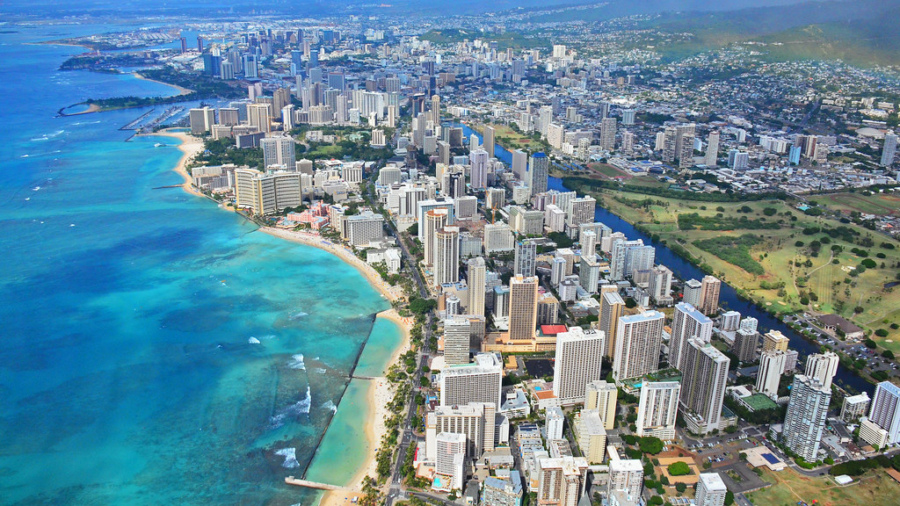Studying abroad will be a life-changing experience. Outside of college, there will be few other times in life where you get the opportunity to immerse yourself in a foreign culture, make lifelong friends from around the world, learn a new language, and just have a blast while managing minimal responsibilities.
Things To Pack
You don’t need to pack much to prepare for your year abroad. You’ll purchase most of what you’ll need once you arrive and get settled in. However, it’s still a good idea to make sure you have the essentials covered. Here’s a basic checklist of the things you’ll need for your foreign adventure:
- Important documents (passport, visa, plane tickets, itinerary, directions to campus etc.)
- Clothes suitable for the climate
- Local currency (enough for a few days while you get settled in)
- Any prescription medication you need for the length of your stay, along with the appropriate documentation
- Backpack (for daily use and as well as day trips)
- Glasses and contact lenses
- Gifts from your home country (for other students, host family etc.)
- Laptop & charger
- Camera & charger
- Adaptors & converters (to ensure your gadgets can plug in locally, research this beforehand)
- Basic toiletries (enough for you to get settled in)
- Language phrasebook (or just download an app onto your smartphone)
Appreciating Cultural Differences
An extended stay in a foreign country will bring out a certain level of culture shock. No matter how much you read up about a country, no matter how much research you do, or even if you’ve been there on vacation – adapting to a new routine and way of thinking will be an eye opening experience.
One of the best things you can do in preparation for your studies abroad is to keep an open mind. Clear your mind of as many pre-conceived notions as possible. You’ll encounter cultural differences that you find quaint, unusual, or even offensive, but one things is for sure – if you keep an open mind, you’ll gain memories and friendships that will last you a lifetime.
Make Friends With The Locals
When you travel abroad to study, you’ll often find yourself in a “bubble” with other international students. It’s natural to gravitate to others in your situation, especially if you all speak the same language. These interactions are certainly valuable, and will give you an opportunity to meet international students from all over the world.
At the same time, it’s important that you make an effort to socialize and make friends outside of your bubble of international students. Join extra-curricular clubs and take up hobbies that force you out of the university campus.
Learn The Language
Students studying abroad usually pick up a few phrases and some basic vocabulary, but most students who study abroad never learn the local language. Most study abroad programs last a year – one year of immersion in a foreign country is plenty of time to learn a new language. In fact, a single year of immersion could be more valuable than a lifetime of learning a 2nd language back home. Even a semester abroad could lead to new language skills if you’re serious about learning.
Make an effort to learn the local language. Not only will it give you a valuable skill for the future, but your experience will be significantly enriched if you can interact with the locals in their native language.
Get A Part-Time Job
This may not always be possible depending on your visa restrictions, but getting a part-time job can be a great way to earn some extra pocket money that can help manage your debt, keep your savings from trickling away to nothing and fund wild nights out or even weekend trips to neighboring countries. Working a part-time job in a foreign country can also be an incredible experience in itself, allowing you to meet new people and see the culture from a different angle.
If you’re in a country where you don’t speak the local language, finding a part-time job can be more difficult, but not impossible. Start by looking for jobs on campus, particularly in departments that have a lot of international students. Try applying to campus administration, shops, the cafeteria, or campus pubs. If you’re taking postgraduate courses, you might find it easier to arrange for work within your faculty.
There should be lots of job postings around campus, so keep your eyes peeled. Try going to the student services offices and inquiring about positions available to international students. You can also look for work teaching English, working as a server/bartender in the tourist district, or doing physical labor, depending on your experience and qualifications.
Live It Up
Studying abroad is a once in a lifetime experience. Even if you have other opportunities for extended travel later in life, the experience won’t be the same as the one you have when you’re a young student with virtually no obligations or responsibilities. Adapting to a new culture, new people, and a completely new routine can be difficult, but if you keep an open mind and continuously push yourself outside of your comfort zone, you’ll have an experience that you’ll cherish for the rest for your life.
Kate Simmons is a travel enthusiast, blogger and university student currently on her exchange year in Europe.





